CONTACTAbout UsCAREER OPPORTUNITIESADVERTISE WITH USPRIVACY POLICYPRIVACY PREFERENCESTERMS OF USELEGAL NOTICE
© 2025 Equal Entertainment LLC.
All Rights reserved
All Rights reserved
By continuing to use our site, you agree to our Privacy Policy and Terms of Use.
We need your help
Your support makes The Advocate's original LGBTQ+ reporting possible. Become a member today to help us continue this work.
Your support makes The Advocate's original LGBTQ+ reporting possible. Become a member today to help us continue this work.
Representatives Tammy Baldwin, Jared Polis, and Barney Frank held a hearing Thursday on the discriminatory Uganda bill that would impose the death penalty for certain acts of gay sex.
One of the witnesses, Ugandan activist Julius Kaggwa of the Civil Society Coalition on Human Rights and Constitutional Law, told Advocate.com, "We want to share with them our stories and call upon the American Congress to stand with us to stop this policy. We need added voices from the international community and from the United States in particular."
Specifically, the legislation would extend the punishment for engaging in gay sex to life imprisonment and introduce the death penalty for those who do so repeatedly or while HIV-positive -- acts termed "aggravated homosexuality" within the bill.
Four people testified alongside Kaggwa in opposition to the bill: Karl Wycoff, U.S. Deputy Assistant Secretary of State for East African Affairs; Cary Alan Johnson, International Gay and Lesbian Human Rights Commission; Reverend Kapya Kaoma of Political Research Associates; and Christine Lubinski, HIV Medicine Association, Infectious Diseases Society of America.
Kaggwa said the bill has already had its first reading in parliament and amendments are now being debated that would refine the death penalty language and propose counseling for people who are gay.
"But we are saying we want the bill to be scrapped in its entirety because it is oppressive and unconstitutional," he said.
Although homosexuality is already against the law in Uganda, Kaggwa said the Uganda constitution provides for the protection of all citizens, including minorities, and also upholds the right to privacy and all human rights as stated in the United Nations Universal Declaration of Human Rights.
Kaggwa also called on President Barack Obama to send a clear message on that matter.
"Our hope is for him to engage more with our president and to speak out more loudly on this particular bill," he said.
Kaggwa's testimony as prepared for delivery to Congress's Tom Lantos Human Rights Commission is provided on the following pages.
Madame
Chairperson, distinguished members of the commission, I thank you for
this invitation to speak with you today about a grave human rights
crisis in my country of Uganda.
I speak here this afternoon as
a member of Uganda's sexual minorities, as a Ugandan human rights
activist, and as a Christian who believes in the foundational faith
principles of love, tolerance, compassion, and mercy.
On a
daily basis, lesbian, gay, bisexual, transgender, and intersex
individuals in Uganda face gross hostility and abuse. This abuse
includes verbal insults, physical and sexual harassment, humiliating
publicity, arbitrary arrests and torture, denial of access to health
care, housing, education, and other social services. These acts and
deprivations are inflicted on us solely on grounds of what is
considered to be traditionally nonconforming sexual identities or
orientation.
I have personally been a victim of this
hostility on several occasions. In one case I was forced to resign
from a job for the simple reason that controversy around my identity
had placed the reputation of the organization I worked for in question.
They felt that having me on their staff drew "unwanted" attention to
their organization.
In another case a house I rented was set
on fire by unidentified people. In yet another case a company I worked
for sent me on a journey with the wrong contact information in order to
get me stranded -- a situation which set off a series of humiliating
media reports. The reports resurrected and made a mockery of my
identity crisis experience rather than the matter at hand at the time.
The same company then used the media reports as grounds to terminate me
from work. On still another occasion a dentist I visited openly asked
me if there were witches in my family and if that could be the reason
for my gender variance. From 1995, when my gender variance was publicly
known, I had several demands for invasive and humiliating body checks
as a precondition for job appointments or acceptance into church
membership.
I personally know lesbians who have been raped by
male relatives in order to so-called "cure them" of their lesbianism.
Sadly, although they were thus infected with HIV, they cannot access
justice. I know gay men who have been habitually blackmailed to avoid
arrest. I have further seen firsthand the trauma of transgender
Ugandans who have been sexually abused, including by the police, and
arrested purely for their gender expression. One transgender woman had
a gang of men violently insert rough pieces of wood in her anus to
remind her that she was a biological man and not a woman. These and
similar abuses are what LGBT Ugandans live with on a daily basis. In
most cases the government has not held the perpetrators accountable.
The
Ugandan penal code already criminalizes same-sex relations in ways that
the United States and many other countries have come to reject. Those
who are convicted are punished with life imprisonment. Legal recourse
is not an option for most LGBT Ugandans, the majority of whom are not
economically able to afford legal services.
The
anti-homosexuality bill, which was introduced into Uganda's parliament
on October 14, 2009, by Hon. Bahati, has aggravated this situation. If
enacted, I have no doubt that it will heighten legislative and social
harassment and persecution of sexual minorities in Uganda. Indeed, it
already has. It will -- among other things -- nullify all constitutional
protections of homosexual Ugandans as minorities within Uganda. The
constitution of Uganda provides for the right to privacy, freedom of
expression, and for the protection of all its citizens, including
minorities.
It also upholds respect for diversity as well as
all other universal human rights enshrined in the United Nations
declaration on human rights. Unfortunately, some laws have been passed
that undercut these rights for sexual minorities. If this bill is
passed, it will undermine the most basic human rights and protections
of the Ugandan LGBTI community. By undermining these protections, it
also will have a chilling effect on broader human rights respect in my
country and the rest of Africa. The bill gives Uganda extraterritorial
jurisdiction, which means that as sexual minorities, we cannot be safe
at home and abroad.
The bill will increase hate crimes against
members of our community, and consequent risk of torture, blackmail,
and murder of homosexuals by both state and nonstate actors. It
proposes to criminalize not only homosexual acts but also even the
"intent" to commit a homosexual act as well as withholding of
information about a "suspected" homosexual by anyone in "a position of
authority." The bill further proposes to criminalize everyone and every
organization with an operating base in Uganda that advocates for the
rights of sexual minorities. This would include individuals and
organizations from the United States, Madame Chairperson.
Since
the bill's first reading in the Ugandan parliament, the Civil Society
Coalition on Human Rights and Constitutional Law has been approached
for help by homosexual people who have received death threats. We have
also been approached by human rights activists whose offices have been
raided by police and where police surveillance continues daily.
Religious leaders have threatened to hunt homosexuals if the government
does not pass the bill quickly. The bill has increased fear among
sexual minorities and among everyone who believes in respect for
diversity in Uganda.
Therefore this bill does not only affect me
and my family just because I am a member of Uganda's sexual minorities,
but it also affects me because I am a human rights activist and because
my citizenship rights are being threatened.
If passed, this bill
will further worsen the access of sexual minorities to health services.
The greatest scare for all sexual minorities in Uganda is how to
protect themselves from HIV infection and to access treatment for those
living with HIV. Sexual minorities in Uganda are already excluded from
mainstream HIV and AIDS interventions. We are not able to readily
access relevant health care and information. This bill makes this
exclusion worse by proposing the death penalty for HIV-positive
homosexual Ugandans. If it is passed, most homosexual Ugandans will not
be brave enough to seek the medical care that any human being needs and
deserves. This provision also leaves a lot of room for malicious
blackmail and venomous attacks, and it threatens to further prevent
homosexual Ugandans from voluntarily testing for HIV and accessing
preventive information and treatment.
In the face of such a
draconian bill, and at the risk of arrest and closure of the operations
of our nongovernmental organizations, we have joined hands with
several elements of Uganda's civil society to form a coalition to
campaign against the monstrous anti-human rights and undemocratic
implications of this bill. To date, the coalition is made up of 26 indigenous organizations, consisting of women's rights
organizations, children rights organizations, sexual minority groups,
legal practitioners, and organizations working in the field of HIV
prevention and treatment.
Our campaign has included bold media
statements against the bill and engagement of community, members of
parliament, and international partners on the outrageous implications
of this bill. The bill does not only affect homosexual Ugandans. It
affects all Ugandans, and all non-Ugandans living and working in
Uganda, who support or even accommodate the protection of sexual
minorities' rights. We therefore believe that the character of our
country and of the rights afforded its citizens is at stake.
The
civil society coalition campaign has yielded some positive responses
thus far, and amendments to certain clauses of the bill are being
proposed by various local religious and political leaders. However, as
a coalition of Ugandan civil society and sexual minorities, we continue
to insist that the parliament and government of Uganda withdraws the
bill in its entirety. We make this demand because the bill is
unconstitutional and because it would show our country to be among the
most repressive and dangerous for people who belong to sexual
minorities.
Many countries around the world recognize sexual
minorities as an integral part of their diversity, entitled to all
human rights accorded to each citizen under their constitution. We
insist on the same for our country and for the sexual minorities for
whom Uganda is home.
Our rights as humans are universal. They
should not be circumscribed by where we were born. And they should not
be eroded by passage of this law, which in itself would be an abuse of
power.
Madame Chairperson, I thank you and your colleagues for your attention.
From our Sponsors
Most Popular
Bizarre Epstein files reference to Trump, Putin, and oral sex with ‘Bubba’ draws scrutiny in Congress
November 14 2025 4:08 PM
True
Jeffrey Epstein’s brother says the ‘Bubba’ mentioned in Trump oral sex email is not Bill Clinton
November 16 2025 9:15 AM
True
Watch Now: Pride Today
Latest Stories
7 times Pete Hegseth was the definition of toxic masculinity
December 02 2025 5:46 PM
Man pleads guilty to murder of gay University of Mississippi student Jimmie 'Jay' Lee
December 02 2025 2:32 PM
Florida man partially paralyzed after neighbor allegedly shot him and used anti-LGBTQ+ slurs
December 02 2025 1:30 PM
Queer comedian Cameron Esposito has first baby with wife Katy Nishimoto
December 02 2025 12:49 PM
Trans National Guard employee in Illinois sues Trump over restroom ban
December 02 2025 11:59 AM
Oklahoma University instructor suspended for failing student’s unscientific anti-trans psychology essay
December 02 2025 11:03 AM
Here are all of Trump's political enemies that have been charged or investigated (so far)
December 02 2025 9:52 AM
Joe Biden to receive top honor at LGBTQ+ leadership conference for his contributions to equality
December 02 2025 6:00 AM
On World AIDS Day, thinking of progress and how to build on it in the face of hostility
December 01 2025 7:47 PM
Ex-Biden White House aide called out for implying Cory Booker’s new marriage is suspicious
December 01 2025 6:04 PM
True










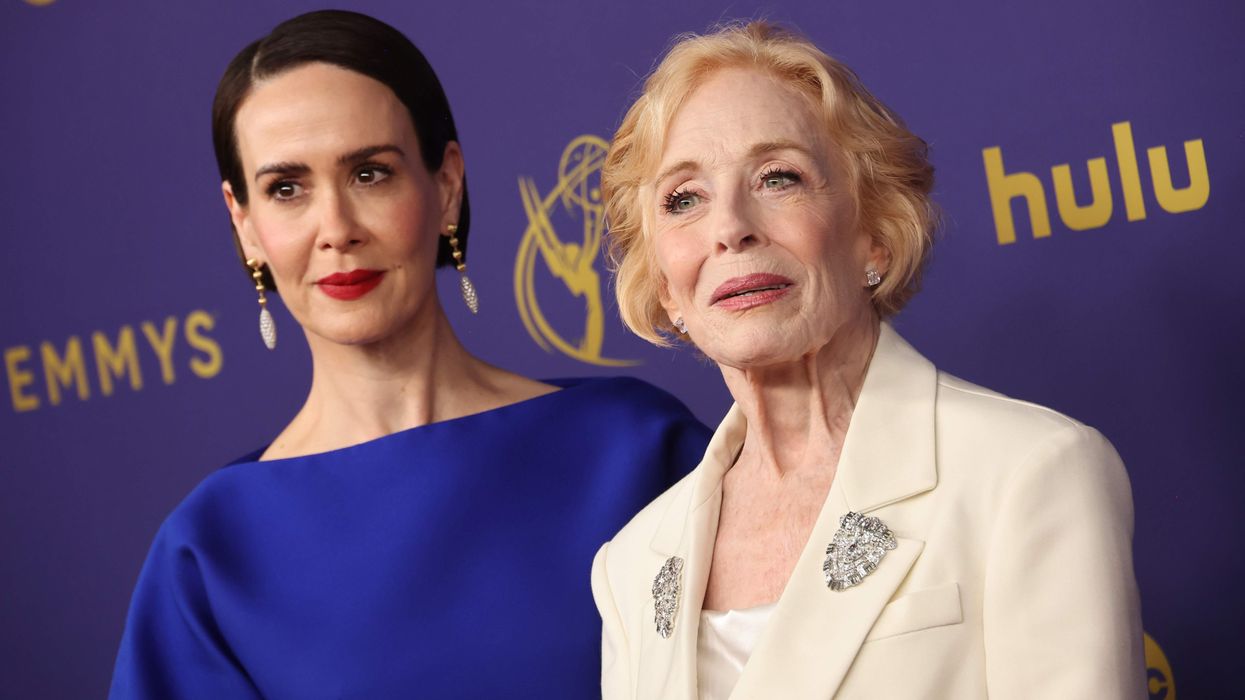

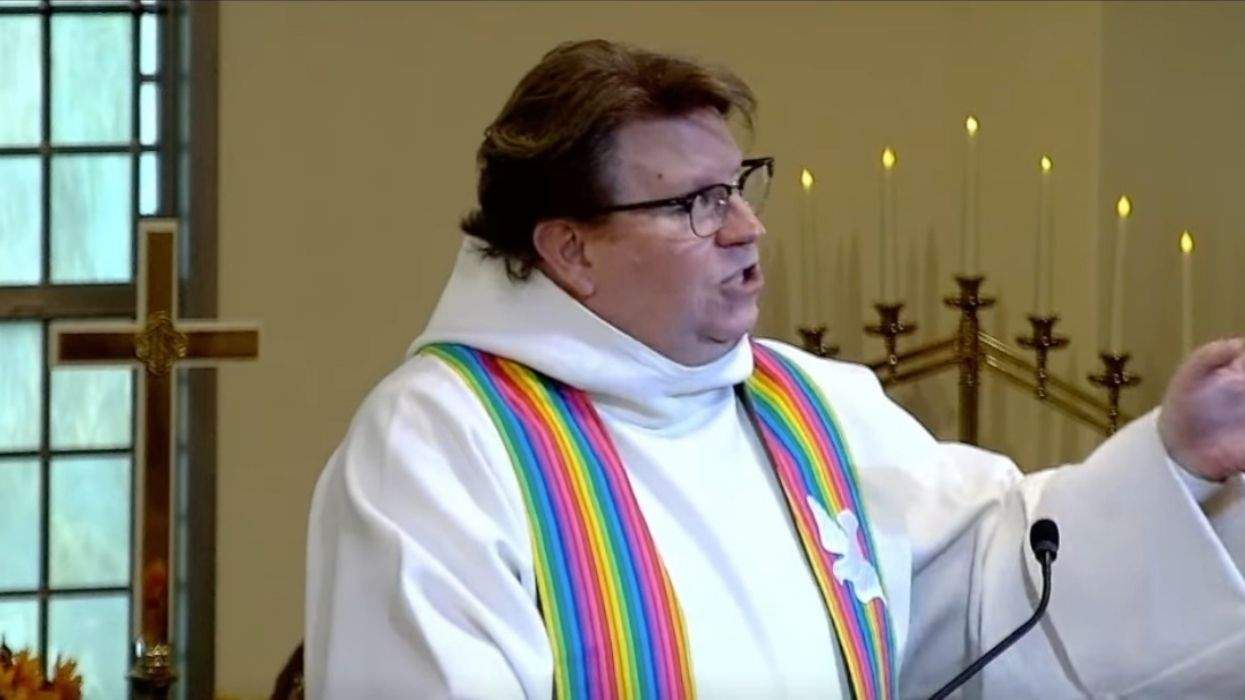








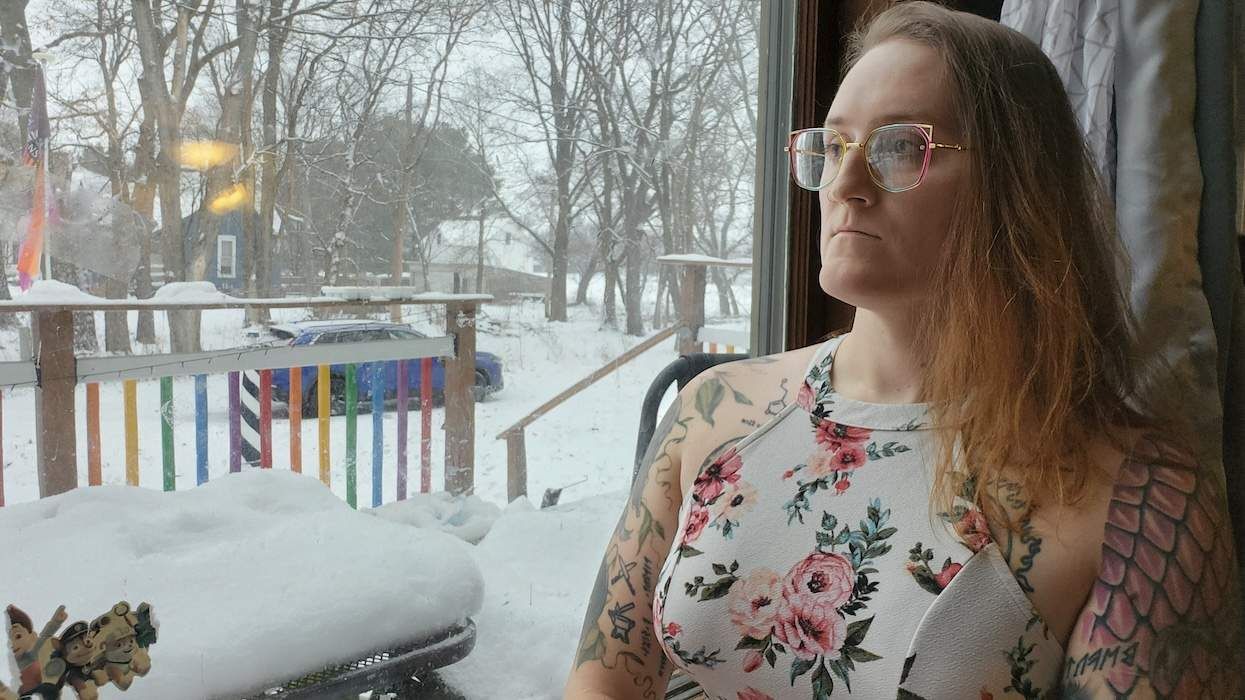

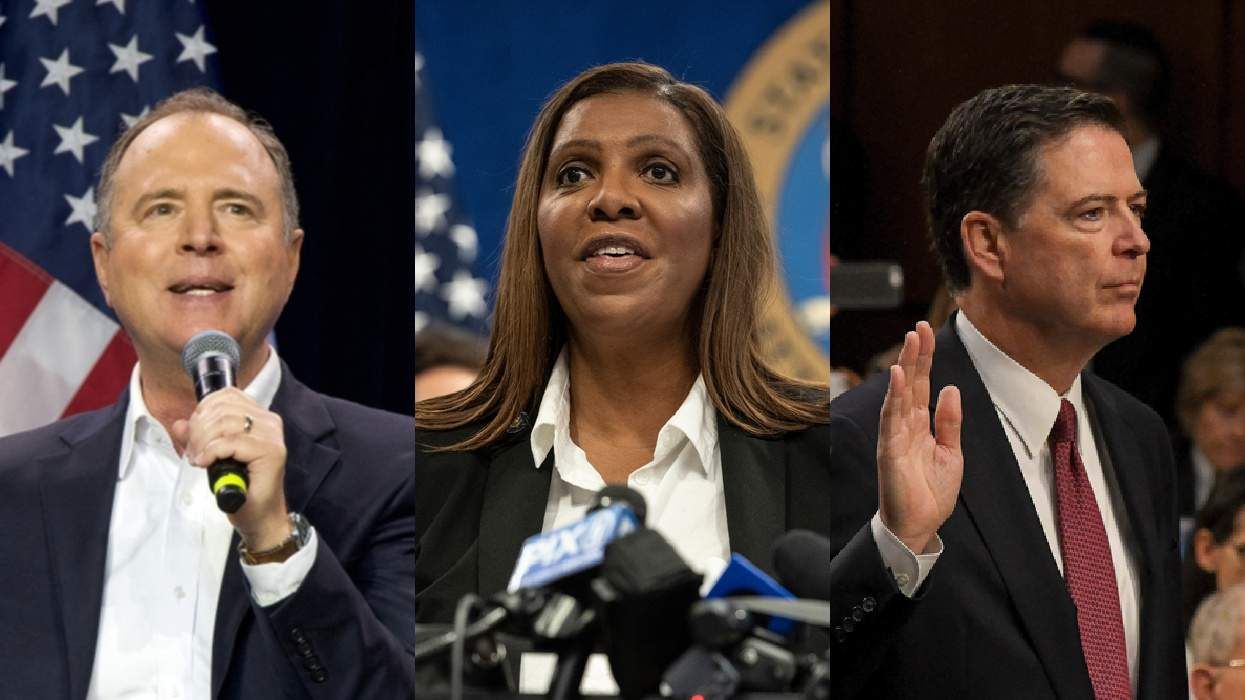

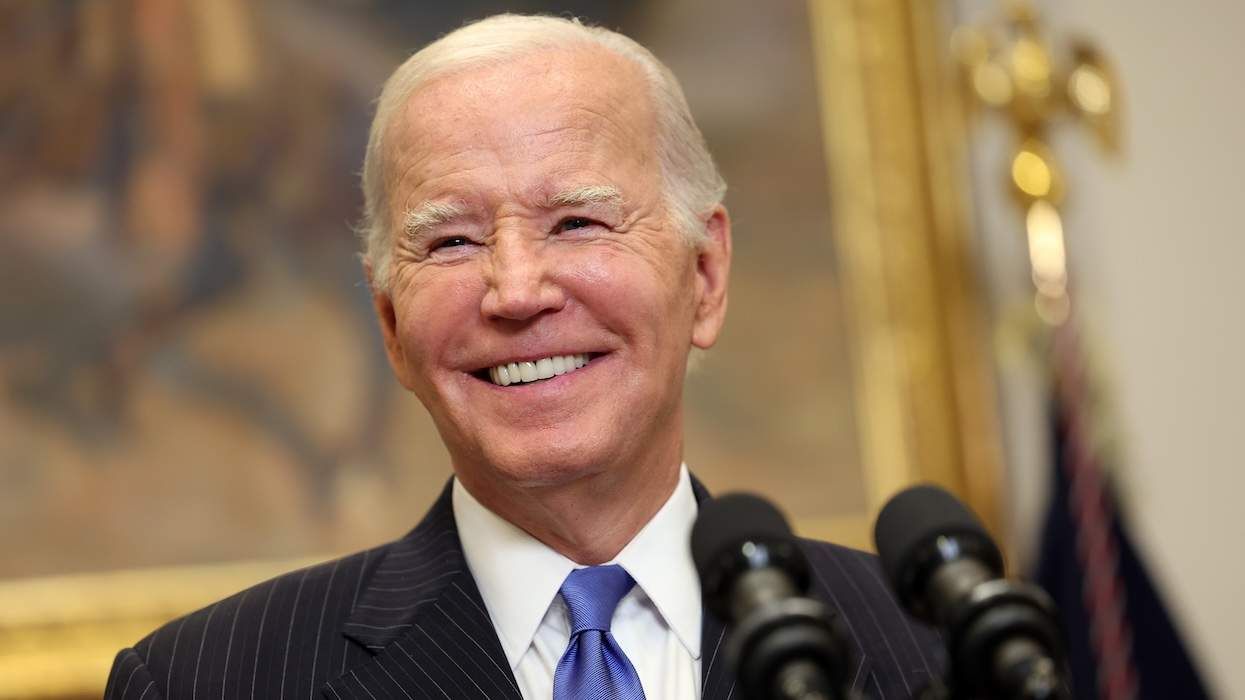
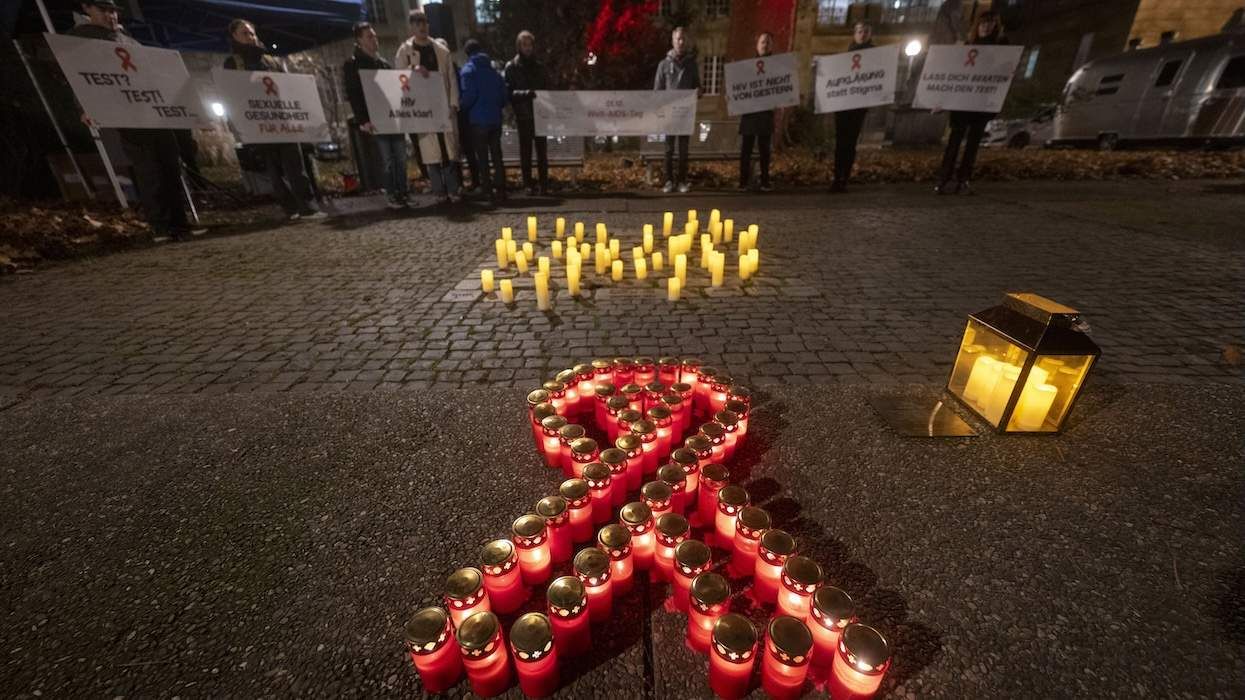









































Charlie Kirk DID say stoning gay people was the 'perfect law' — and these other heinous quotes